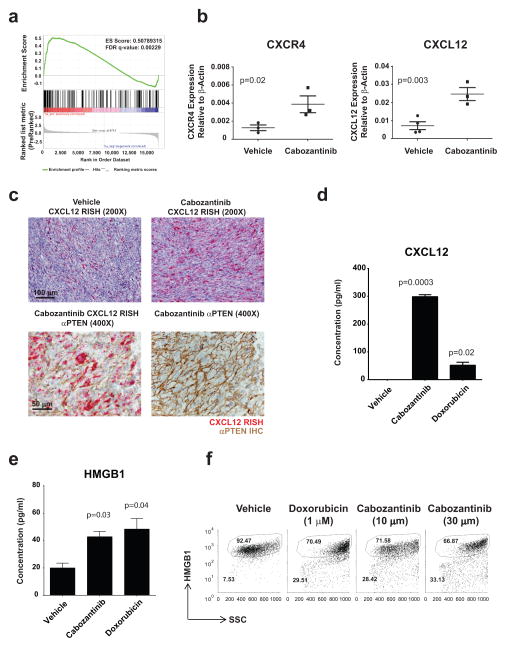Figure 4. Cabozantinib treatment causes significant upregulation of CXCL12 and HMGB1 levels within the tumor microenvironment.
A) Pb-Cre; PTENfl/flp53fl/fl mice with established prostate tumors were treated with cabozantinib at 100 mg/kg daily for 48 hours followed by tumor RNA extraction. Gene set enrichment analysis revealed a highly increased expression of immune response related gene sets. B) Mice were treated with cabozantinib as above for 24 hours followed by tumor RNA extraction. Quantitative RT-PCR analysis was performed for several immune response genes, and showed a statistically significant upregulation of CXCL12 and CXCR4 gene expression with cabozantinib treatment (n=3 mice per timepoint). C) CXCL12 RNA in situ hybridization (RISH) of tumors from mice acutely treated with cabozantinib for 24 hours revealed increased intratumoral CXCL12 expression (upper panel). Combined CXCL12 RISH and PTEN IHC from these tumors showing that the PTEN-deficient prostate cancer cells within the tumor microenvironment are producing CXCL12 (lower panel) following cabozantinib treatment. Representative staining from n=3 mice per condition. Increased release of CXCL12 (D) and HMGB1 (E) following in vitro treatment of murine tumor-derived prostate cancer cells with cabozantinib. SC1 cells were treated with vehicle, cabozantinib (10 μM) or doxorubicin (1 μM) for 24 hours. Supernatants were analyzed for CXCL12 and HMGB1 by ELISA. F) SC1 cells were treated with vehicle, cabozantinib (10 μM) or doxorubicin (1 μM) for 28 hours and subjected to FACS analysis, demonstrating cabozantinib-induced HMGB1 depletion (n=3 experiments for D–F).

